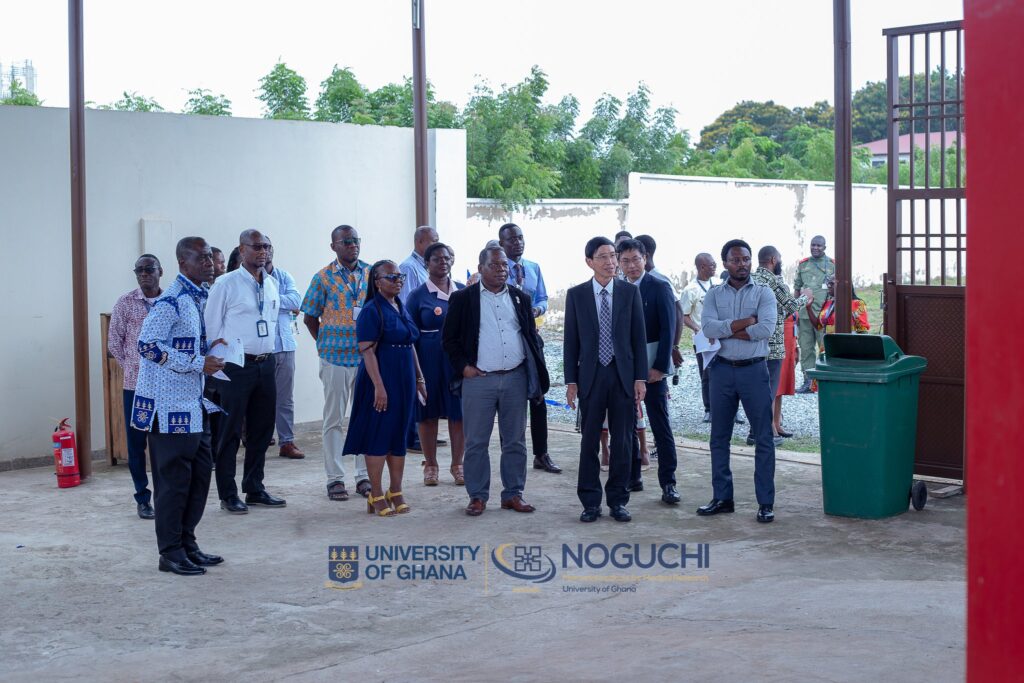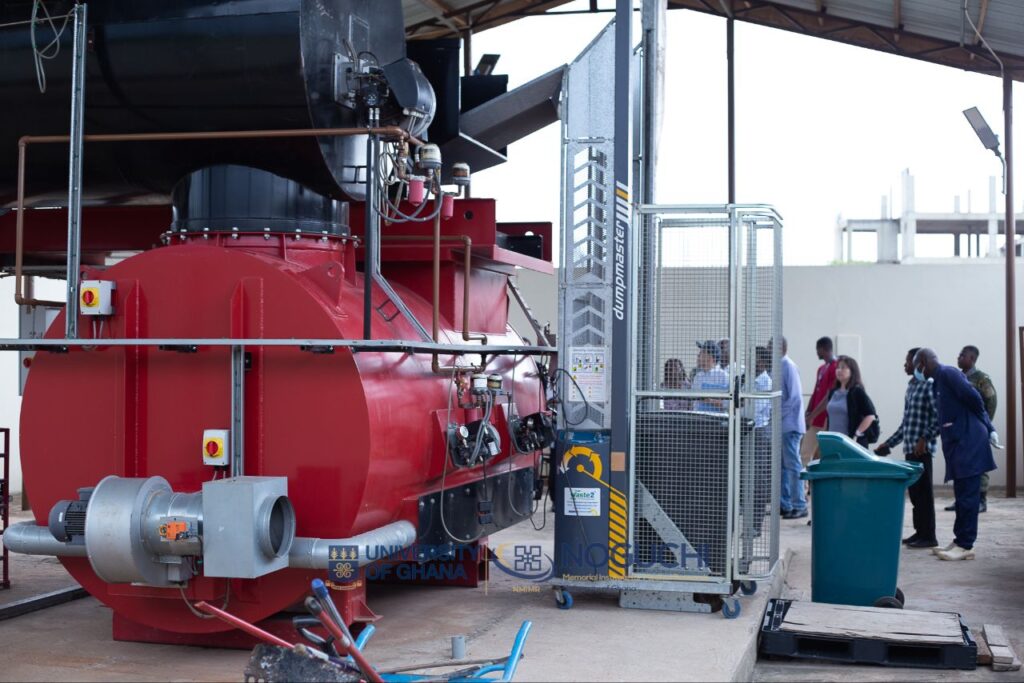The Noguchi Memorial Institute for Medical Research at the University of Ghana has significantly enhanced its biomedical waste management capabilities with the commissioning of a state-of-the-art incinerator funded by the government of Japan.
With the capacity to treat 250kg of medical waste per hour and 3,200kg per day, this new facility addresses critical waste management challenges and ensures safer disposal practices at Ghana’s foremost medical research Institute.
The incinerator was provided under Japan’s Grant Assistant Human Security Projects (GGHSP) scheme. It is equipped with advanced features that operate at high temperatures to ensure the complete combustion of biomedical waste with an efficient emission control system to minimise environmental impact.
Director of Noguchi, Prof. Dorothy Yeboah-Manu, delivering remarks at a brief ceremony to commission the facility at the Institute, stated the importance of the incinerator, “It is very crucial considering what we do at the Institute. One can imagine the amount of biological waste that we generate daily, so as a centre of excellence, we could not generate the biological waste, which will put our staff and the Ghanaian population at risk.”
She recounted challenges with the previously installed incinerator, which had outgrown its usefulness and broken down.
Prof. Yeboah-Manu expressed her appreciation for the support from the Japanese Embassy, adding, “With the aid of the Grant Assistance for Grassroots Human Security Projects of the Embassy, we were awarded a grant of more than 130,000 U.S. dollars. We are happy to say that now Noguchi has the equipment to drastically reduce the waste that we generate here.”
The Director also underscored the incinerator’s operational benefits. She noted that “Due to the very high temperature, whatever waste that we generate is reduced to a small amount of ash that we can bury onsite. This ensures that we do not need to transport the waste to any place since we can dispose of and manage it onsite.”
Commenting on scaling the facility to process waste from other institutions, Prof. Yeboah-Manu said, “This modern incinerator allows us to handle the waste of other biomedical institutions, including CSIR and hospitals with laboratories that handle contagious products, enhancing overall biomedical waste management in Ghana.”

Japanese Ambassador to Ghana, His Excellency Mochizuki Hisanobu, who officially commissioned and handed over the facility, detailed the longstanding partnership that saw to the installation of the incinerator. He also mentioned the significance incinerator and its role in addressing waste management challenges at the institute. “The importance of biomedical waste management cannot be stressed enough. The Embassy of Japan is very pleased to have partnered with the Noguchi Memorial Institute for Medical Research to provide this modern incinerator for the safe management of its biomedical waste,” he said.
Ambassador Hisanobu reiterated Japan’s ongoing commitment to supporting the institute, stating, “Since the inception of the Institute, there have been numerous collaborations from both JICA and the Japan Embassy in Ghana to ensure the facility provides optimum services to the people of Ghana and the sub-region. The provision of this incinerator reaffirms our commitment to continue with our partnership with the Institute to the best of our capacity.”
The newly installed incinerator, valued at $139,203, is equipped to handle various types of biomedical waste, including bottles, paper and metallic items. The facility’s introduction marks a significant advancement in the institute’s ability to manage hazardous materials safely and effectively.
Additionally, Mr. Theodore Ahuno, Administrator of the Institute, provided a detailed background during the commissioning event, explaining the funding secured in 2020 and the subsequent procurement and installation of the incinerator by ADDFIELD Environmental Services Limited.
He was of the view that “proper waste disposal is critical to ensuring the health and safety of researchers, health workers and the surrounding community.” Mr. Ahuno also highlighted that trained personnel have been appointed to manage the facility, ensuring its effective operation and maintenance.
This new incinerator further enhances safety and hygiene at the Noguchi Memorial Institute and sets a benchmark for biomedical waste management standards across Ghana.

